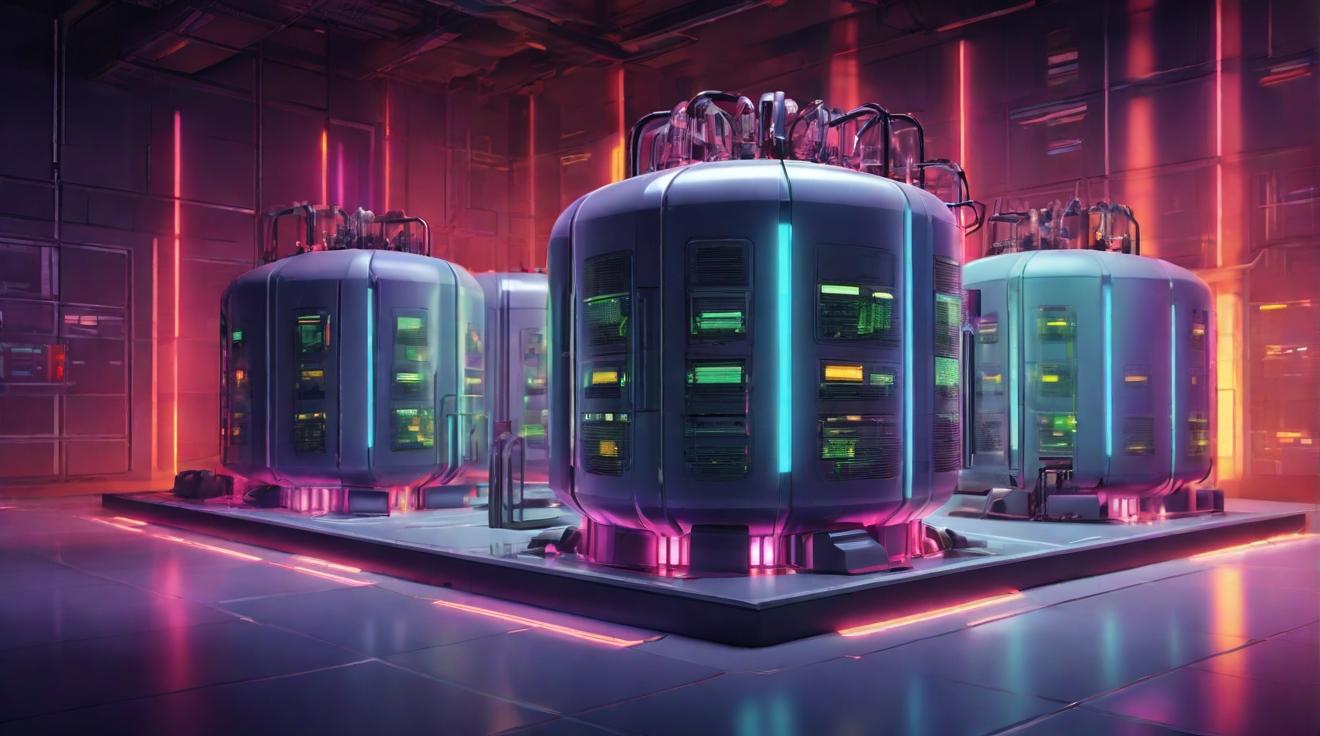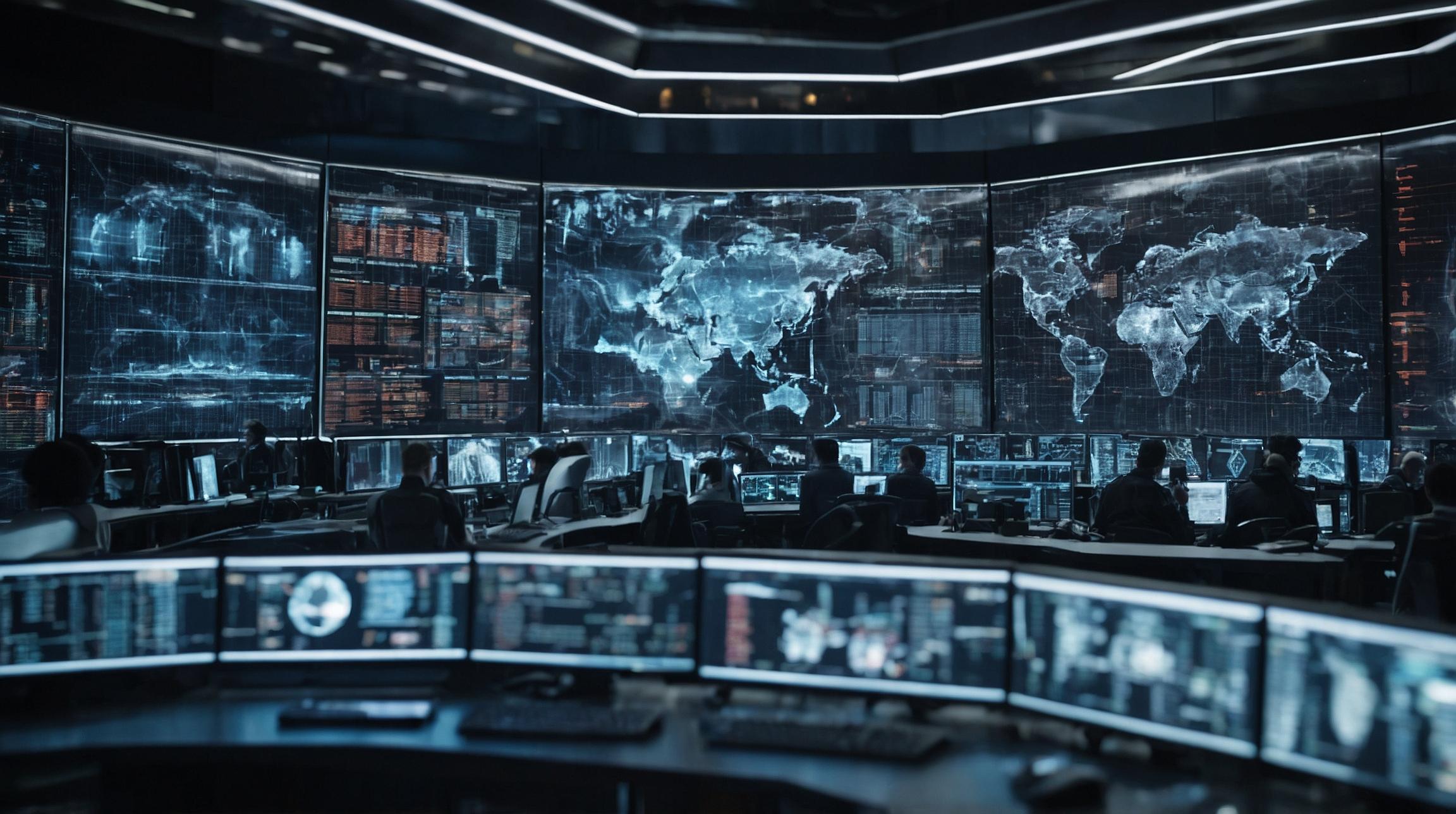Nuclear Reactors: The Future Power Source for AI Data Centers
In an era where artificial intelligence (AI) is progressing at an unprecedented rate, the demand for power in data centers supporting AI operations is hitting new peaks. Chris Sharp, the Chief Technology Officer at Digital Realty, a leading construction and high-tech business, disclosed the company's newest venture—a massive data center in Portland, Oregon, tailored specifically for AI applications. This innovative center starkly contrasts traditional data centers, requiring a whopping 80 megawatts of power compared to the regular 32 megawatts. This surge in power demand, driven by AI's intensive processing needs, is pushing the industry towards a novel solution: built-in nuclear reactors.
The Shift Towards Nuclear Power
As AI continues to embed itself into our digital lives, the underlying infrastructure must evolve. The solution, according to industry insiders like Sharp, lies in Small Modular Reactors (SMRs), a technology capable of providing a third of the power of conventional nuclear plants and yet perfectly suited for the energy-hungry AI data centers.
While the notion of data centers with their own nuclear reactors might seem far-fetched, the concept is gaining traction. Currently, there are about 50 SMR designs under consideration worldwide, with China leading the way in commercial operation. This movement towards SMRs for data centers isn't just about meeting power demands; it's a forward-thinking approach to sustainable and reliable energy use in an industry notorious for its hefty consumption.
Challenges and Solutions
Despite the optimism, the path to nuclear-powered data centers is fraught with challenges, ranging from regulatory hurdles to public skepticism about nuclear safety. However, proponents argue that the new breed of SMRs is designed for safety and efficiency, with features that prevent meltdown scenarios and systems that can cool and regulate themselves autonomously.
Companies like NuScale in the US and Rolls-Royce in the UK are at the forefront of bringing SMR technology to commercial reality. Similarly, Oklo, a California-based energy firm, is nearing the final stages of rolling out its SMR designs. According to Brian Gitt, Oklo's business development head, AI data centers are the prime candidates for this technology. Gitt highlights the company's vision for a data center built around a large stainless steel tank housing the SMR, combining cutting-edge technology with practical energy solutions.
The Road Ahead
Despite the hurdles, the industry's heavyweights are optimistic. The involvement of major players like Sam Altman, chairman of Oklo and leader of OpenAI, underscores the strategic importance of integrating SMR technology with AI data centers. This collaboration between nuclear engineering and digital infrastructure represents a pivotal shift towards addressing the voracious energy appetites of AI-driven operations.
As AI continues to evolve, the conversation around its power consumption and environmental impact grows louder. The pursuit of nuclear-powered data centers offers a glimpse into a future where technology and sustainability converge, heralding a new era of digital infrastructure that's not only powerful but also responsible.
In summary, as AI demands grow, so does the need for innovative power solutions. Nuclear reactors, specifically SMRs, could be the key to unlocking a sustainable, power-efficient future for data centers, reshaping the landscape of AI technology and its infrastructure. The journey is complex and dotted with challenges, but with industry leaders pushing the boundaries, nuclear-powered data centers could soon become a reality.
Analyst comment
Positive news: The implementation of nuclear reactors in AI data centers is gaining traction as a sustainable and efficient power solution. Despite challenges, major players in the industry are optimistic about integrating Small Modular Reactor (SMR) technology with AI operations. This shift represents a pivotal moment in addressing the energy demands of AI-driven operations and promoting responsible digital infrastructure.













